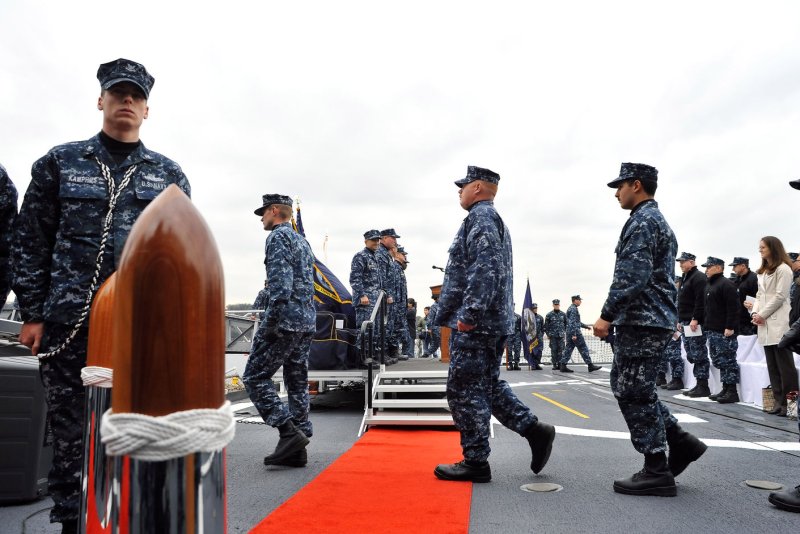The USS Antietam crew walk during a command ceremony aboard the missile cruiser at Yokosuka U.S. Naval Base in Japan. The Antietam ran aground of the Japanese coast on Tuesday. File Photo by Keizo Mori/UPI |
License Photo
Feb. 1 (UPI) -- A U.S. missile cruiser ran aground Tuesday off the coast of Japan, according to the Navy Times and local Japanese news sources.
The forward-deployed USS Antietam, named after a battle between Confederate and Union forces during the American Civil War, grounded after anchoring out in high winds, U.S. Navy officials said.
The ship's crew noticed the cruiser was dragging its anchor. After it began moving through the water, the crew felt the ship lose control in both propellers.
The wreck caused the ship to discharge 1,100 gallons of oil into the sea, near its home port of Yokosuka.
U.S. Naval Forces Japan did not say how long it would take to repair the ship, after if was brought back to base with a tugboat, according to Japanese newspaper Sankei Shimbun.
Officials at the U.S. naval base in Yokosuka said they are investigating the cause of the Antietam oil spill, and that they are taking appropriate measures to minimize the impact on the environment.
The Antietam has a displacement of about 9,600 tons, measures 567 feet in length and has a beam of 55 feet.
The missile cruiser can carry up to 387 crew members and can travel at a speed of 33 knots.
The ship can be equipped with missiles, gunships and torpedoes.
The forward-deployed cruiser has been deployed with the U.S. Seventh Fleet since February 2013, and has carried out missions around the Korean peninsula as well as the East and South China Seas.















